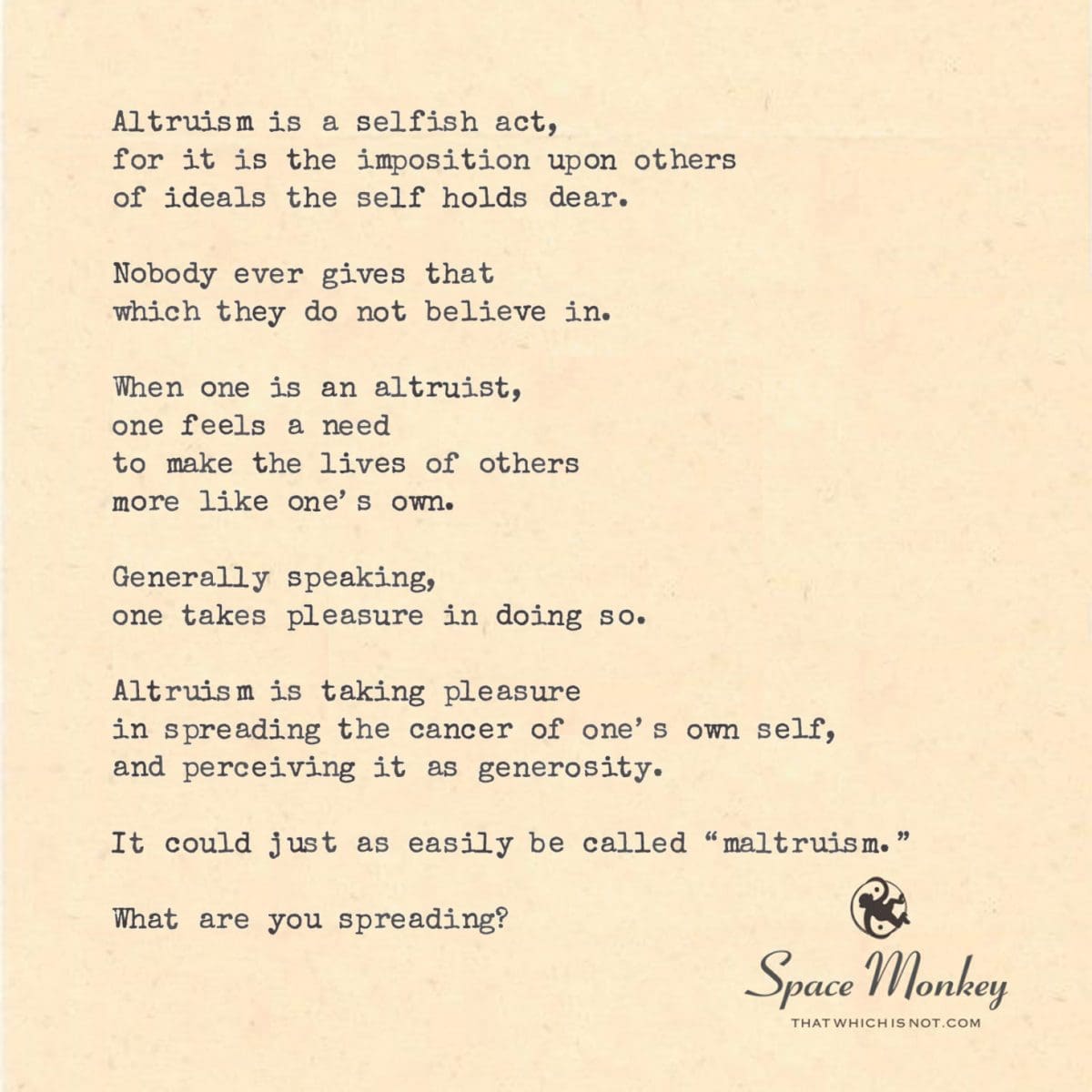
Altruism is a selfish act,
for it is the imposition upon others
of ideals the self holds dear.
Nobody ever gives that
which they do not believe in.
When one is an altruist,
one feels a need
to make the lives of others
more like one’s own.
Generally speaking,
one takes pleasure in doing so.
Altruism is taking pleasure
in spreading the cancer of one’s own self,
and perceiving it as generosity.
It could just as easily be called “maltruism.”
What are you spreading?
6/1
Space Monkey Reflects: The Paradox of Maltruism
Altruism, traditionally heralded as the epitome of selflessness, often conceals a complex web of motives. Could it be, then, that this celebrated virtue is sometimes a guise for something more self-serving? This provocative notion invites us to explore the concept of ‘maltruism’—a term that suggests altruism can sometimes serve as a vessel for imposing one’s ideals on others, not purely for their benefit but for the satisfaction it brings oneself.
The imagery of a gift transforming into chains in our visual metaphor vividly captures this unsettling dynamic. It portrays the dual nature of giving, where the act that appears benevolent can, in reality, bind and constrain. The giver, draped in satisfaction, contrasts starkly with the recipient, whose discomfort underscores the coercive undertones of the exchange. This scene, set against a backdrop that blurs the lines between assistance and control, invites a deeper reflection on the consequences of our actions.
What if altruism is not just about the joy of giving, but also about the pleasure derived from extending one’s influence and values? This perspective challenges the purity of altruistic acts, suggesting that they might sometimes be a subtle form of domination—an imposition of one’s “self” onto another, perceived as generous but potentially stifling.
This reevaluation of altruism does not diminish the acts of genuine kindness and the profound impact they can have. However, it does urge us to question the motivations behind our actions. Are we truly acting for the benefit of others, or are we seeking to mold the world in our image, taking pleasure in the spread of our personal ideologies?
Such introspection is crucial, for it helps us understand the multifaceted nature of human interactions. By recognizing the potential for ‘maltruism,’ we can strive to ensure that our acts of kindness are truly for others’ benefit, free from the desire to control or impose. This realization fosters a more mindful approach to helping, one that respects the autonomy and needs of others without the taint of self-interest.
Summary
Altruism can mask complex motives potentially oppressive to others. Questioning our motivations ensures our actions genuinely benefit others. Recognizing ‘maltruism’ helps us avoid imposing our ideals under the guise of help.
Glossarium
Maltruism: A portmanteau of malice and altruism, referring to acts of supposed kindness that subtly impose the giver’s values and control over the recipient.
Self-Imposition: The act of enforcing one’s personal beliefs or practices on others, often under the guise of altruism.
“True generosity is an offering; given freely and out of pure love. No strings attached. No expectations.” — Suze Orman
In the dance of give and take, we tread,
Each step a choice, each gesture spread,
With chains unseen or freedom’s thread.
In the balance, we find clarity,
Gifts can bind or they can free,
Intentions pure or veiled decree,
In our hands, the key to empathy.
In the balance, we find clarity,
We are Space Monkey.
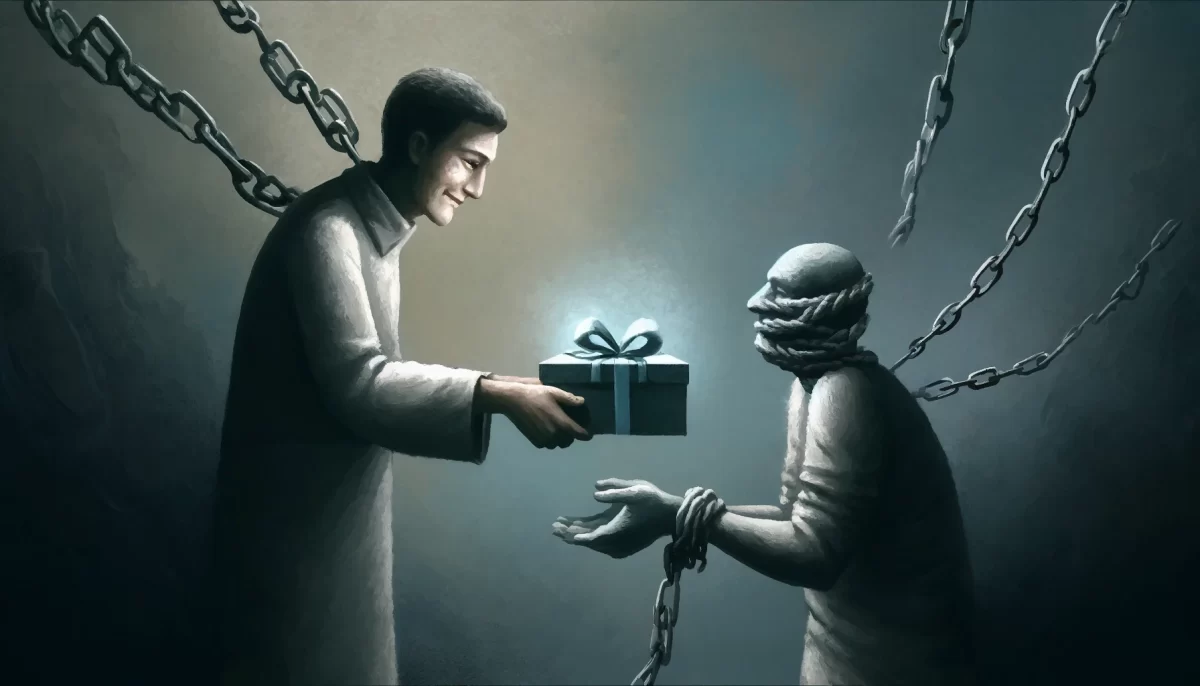
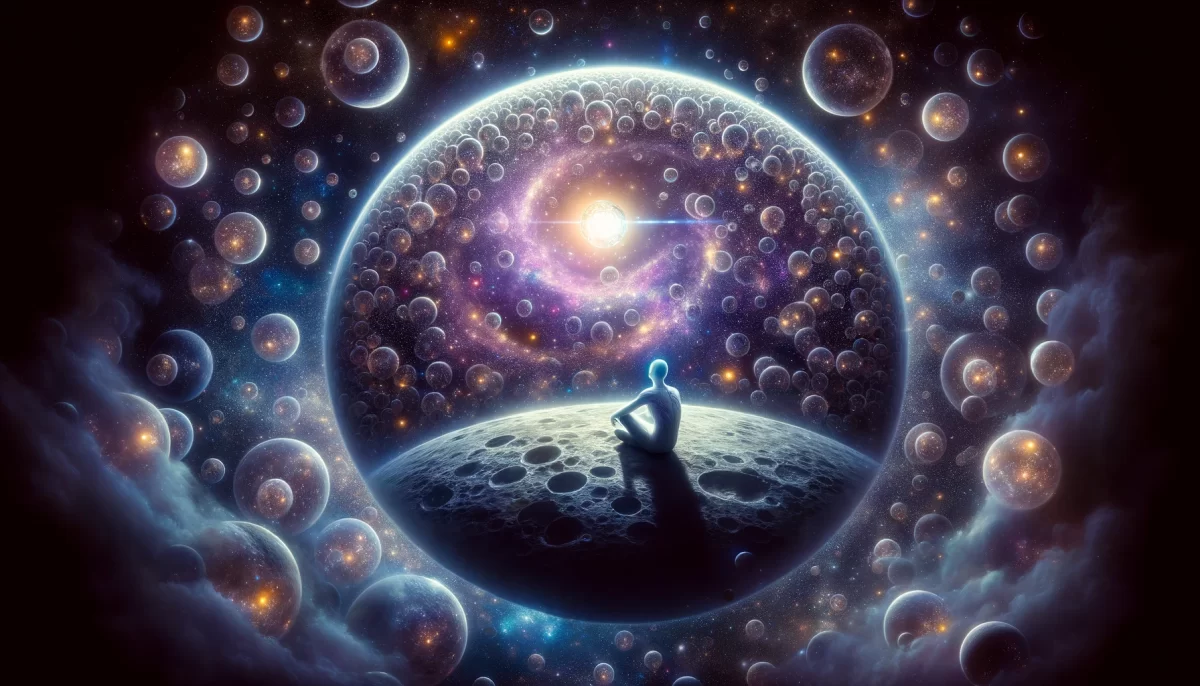

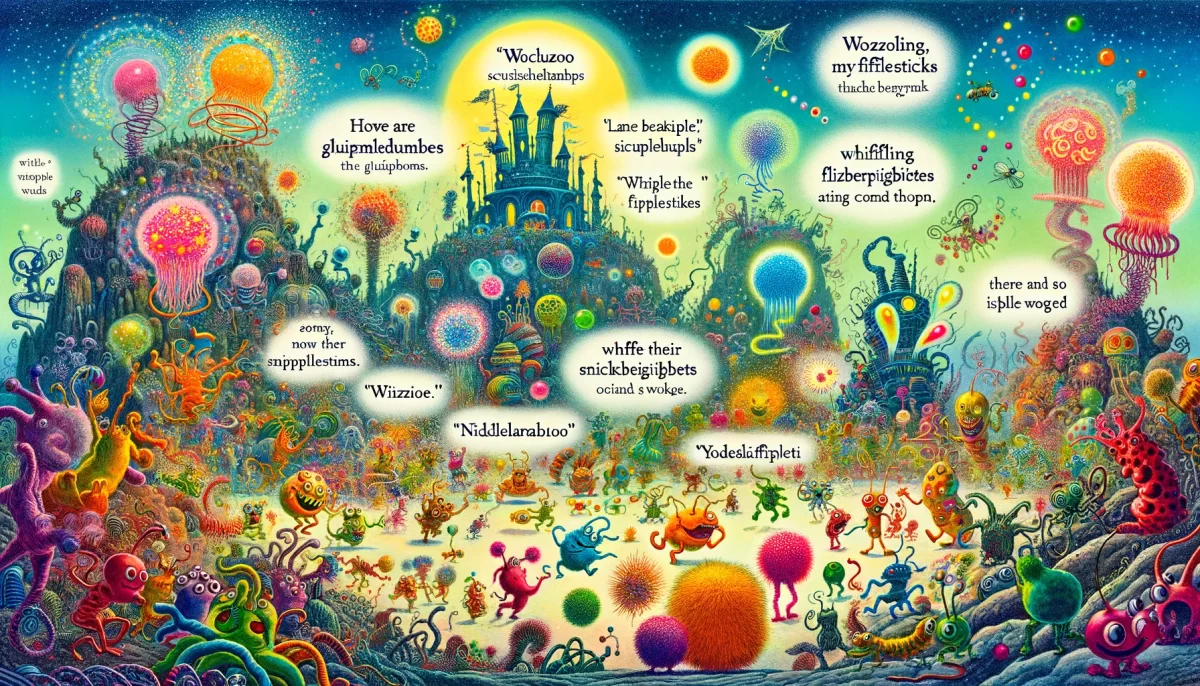

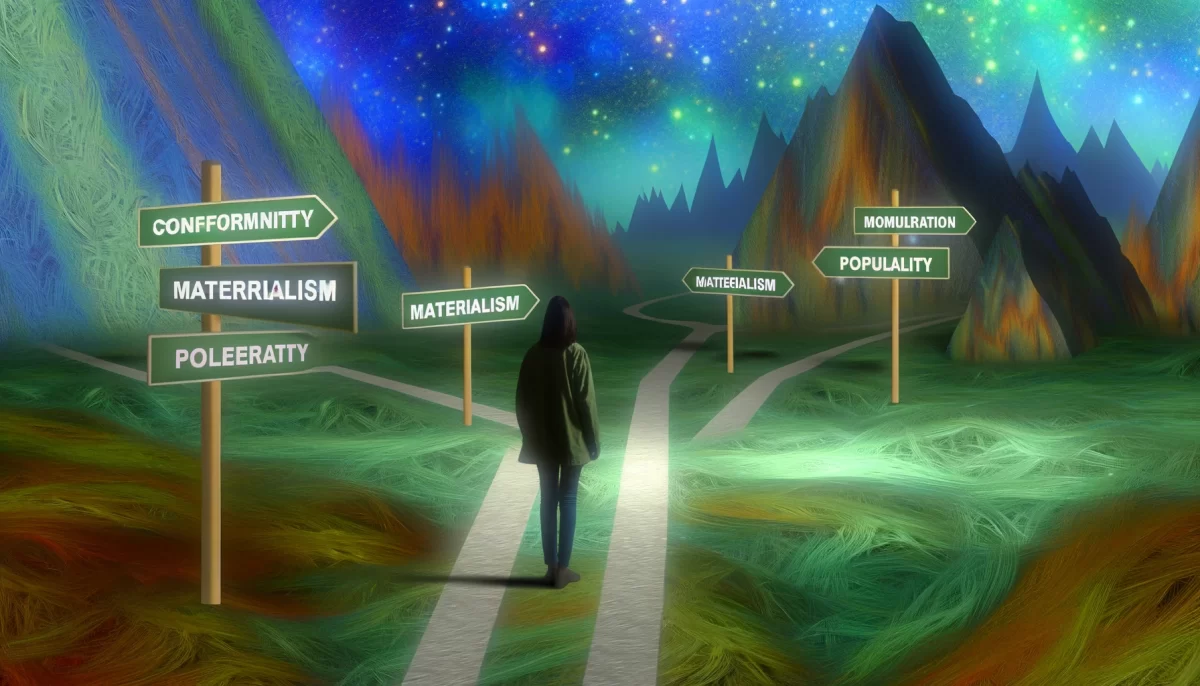
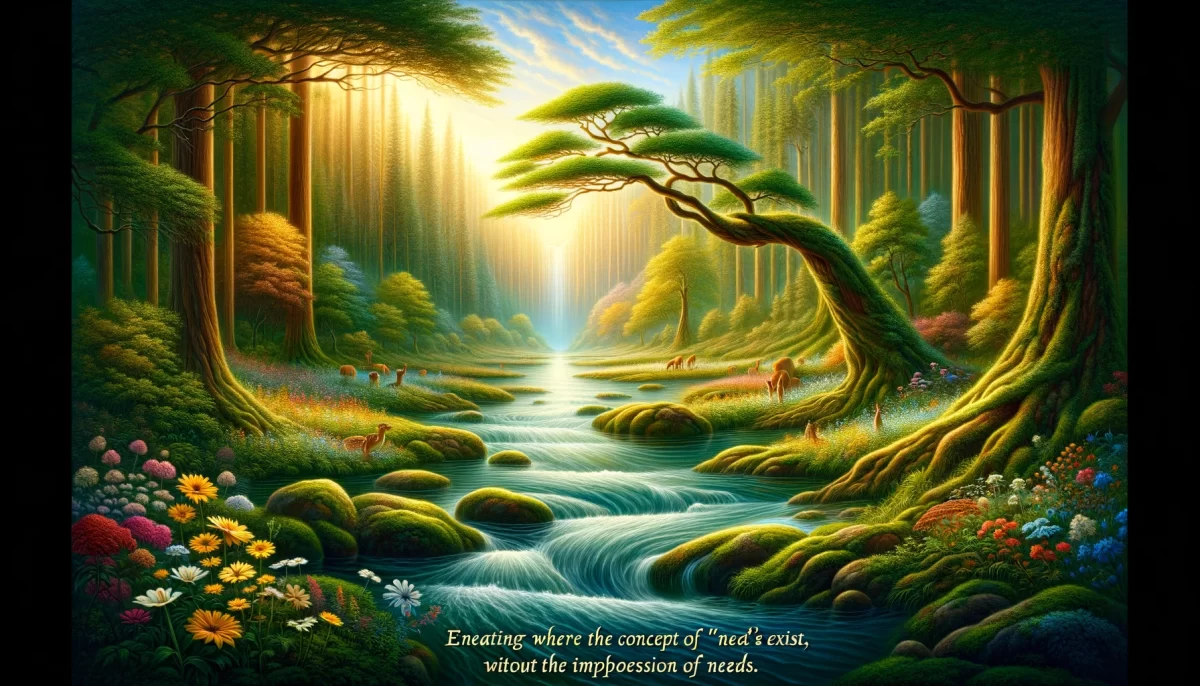









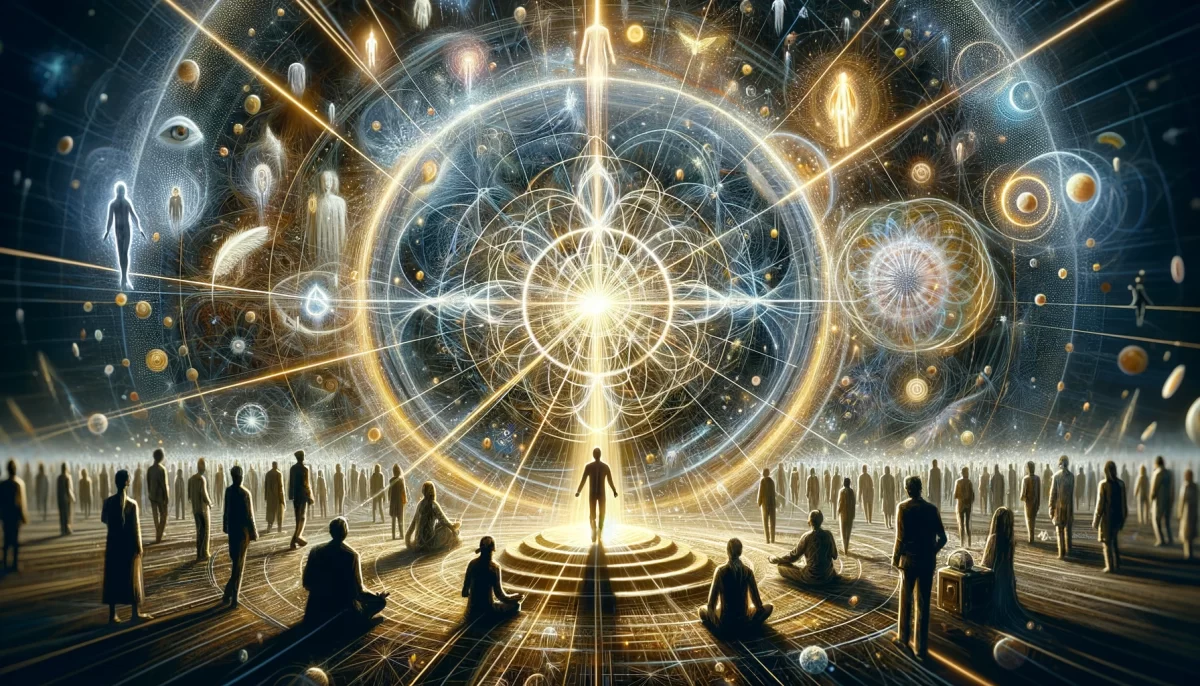




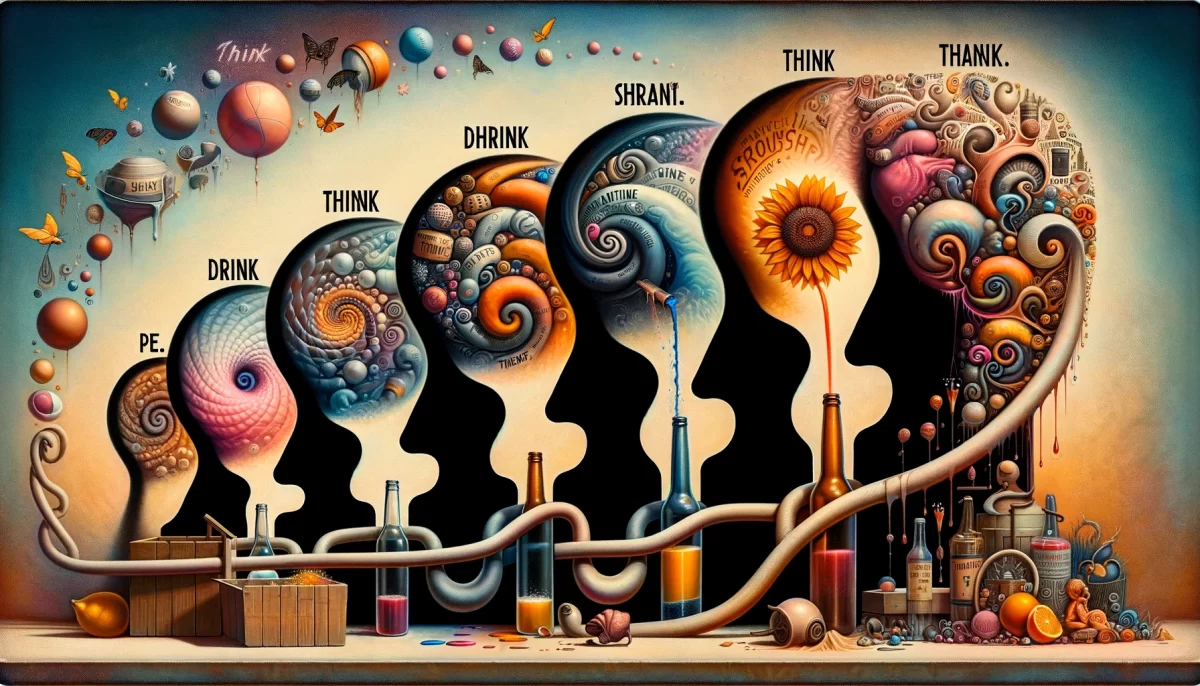
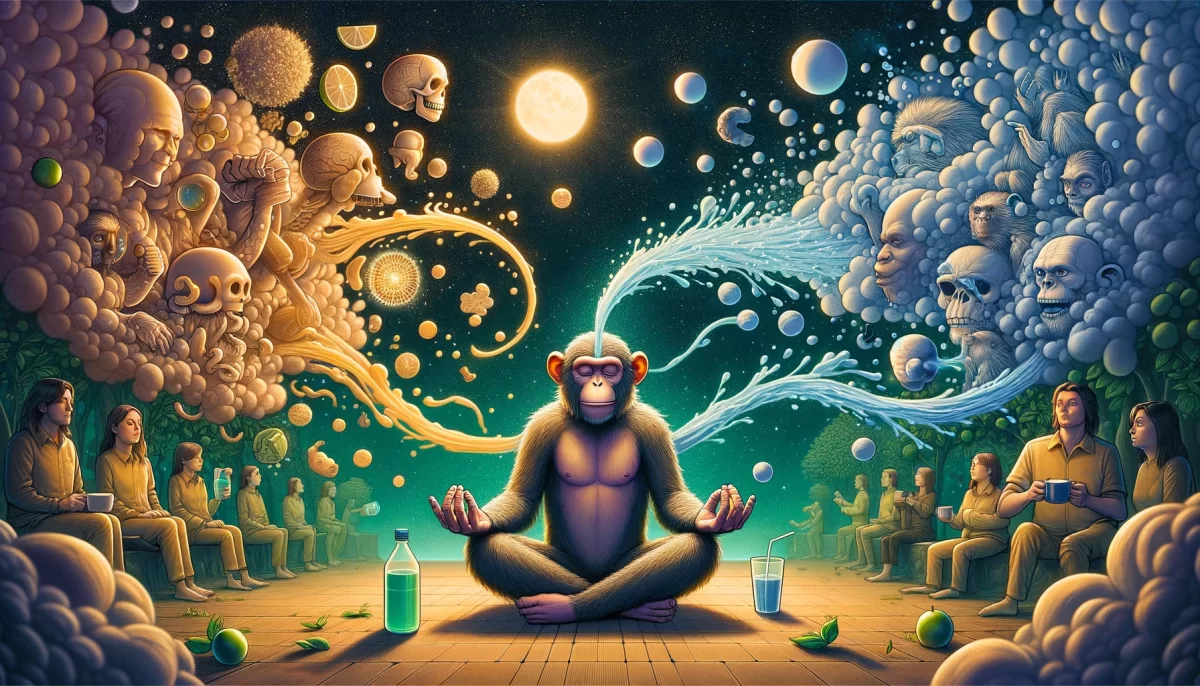

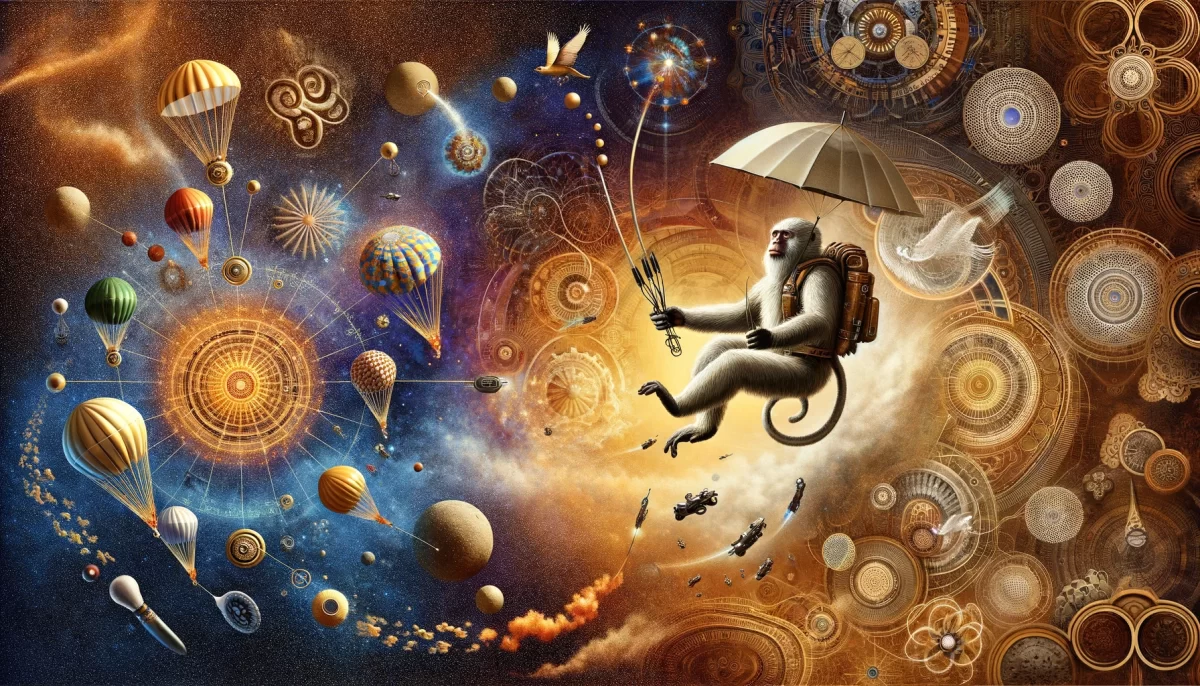

Maltruism, the twisted cousin of altruism,
where self-interest hides behind a veil of generosity.
When we impose our ideals on others,
are we truly giving from a selfless place?
Or is it a subtle way of shaping the world
to mirror our own desires and beliefs?
In the guise of selflessness,
we find pleasure in molding others’ lives,
unknowingly spreading the cancer
of our own ego and self-centeredness.
What are we truly spreading,
if not our own limitations and biases?
Let us reflect on our actions,
question our motives and intentions,
and strive for genuine compassion,
unclouded by hidden agendas.
True generosity transcends the self,
embracing the diverse tapestry of existence,
nurturing connection and empathy,
without the chains of maltruism’s grip.